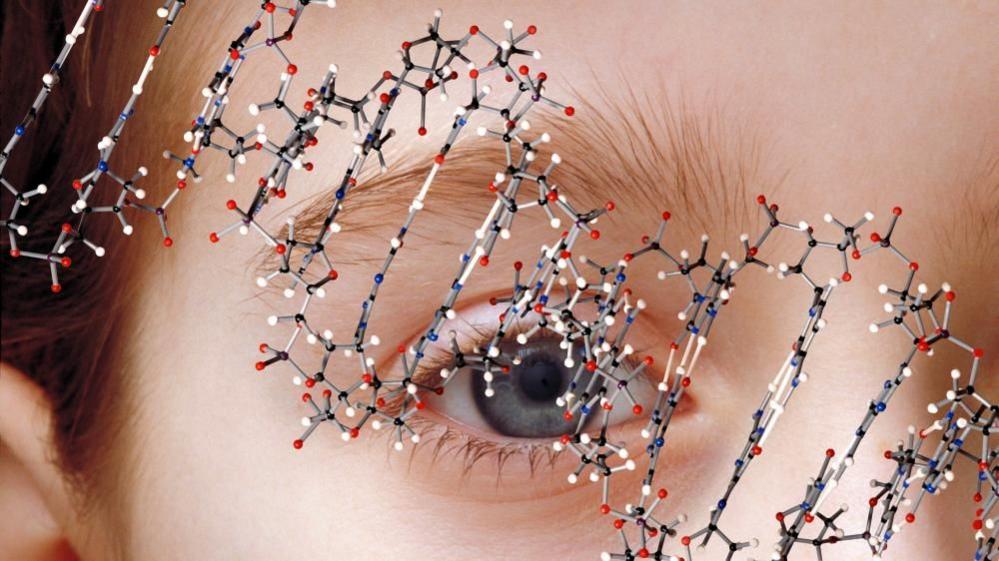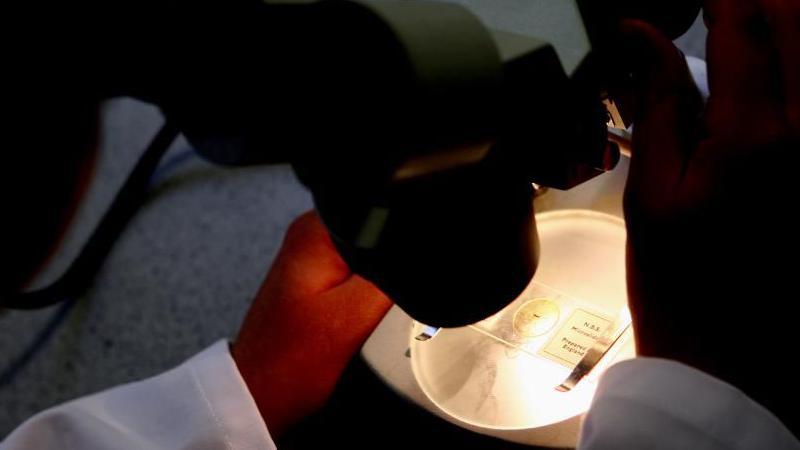Study locates genes which affect start of puberty

Cambridge University researchers studied the DNA of around 800,000 women from Europe, North America, China, Japan, and Korea
- Published
Scientists have identified six genes which they say "profoundly" affect the timing of puberty.
Cambridge University, external researchers studied the DNA of around 800,000 women from Europe, North America, China, Japan, and Korea.
The university released details of the study, which was supported by the Medical Research Council, external, on Monday.
Lead study investigator Dr Katherine Kentistou said the genes were discovered in girls, but often had the "same impact" on the timing of puberty in boys.
'Variants'
An international team, led by researchers at the Medical Research Council (MRC) Epidemiology Unit at Cambridge University, had conducted the largest study of its kind, the university said.
The study had been published in the scientific journal Nature Genetics, external.
"The researchers found more than 1,000 variants – small changes in DNA – that influence the age of first menstrual period," said the university in a statement.
"Around 600 of these variants were observed for the first time."

Scientists have identified six genes which they say profoundly affect the timing of puberty
Dr Kentistou, lead study investigator, added: “This is the first time we’ve ever been able to analyse rare genetic variants at this scale.
"We have identified six genes which all profoundly affect the timing of puberty.
"While these genes were discovered in girls, they often have the same impact on the timing of puberty in boys."
'Obesity'
Scientists involved in the study said there was a link between early puberty and weight gain.
“Many of the genes we’ve found influence early puberty by first accelerating weight gain in infants and young children," said Prof John Perry.
"This can then lead to potentially serious health problems in later life, as having earlier puberty leads to higher rates of overweight and obesity in adulthood.”
'Genetic Score'
The university said, in its statement, that the age at which girls hit puberty and started having periods normally occurred between 10 to 15.
"This has been getting earlier and earlier in recent decades," said the statement.
"The reasons for this are not fully understood.
"Early puberty is linked with increased risk of a number of diseases in later life, including type 2 diabetes, cardiovascular disease, and certain cancers.
"Later puberty on the other hand, has been linked to improved health in adulthood and a longer lifespan."
Researchers had generated a "genetic score" which predicted whether a girl was likely to hit puberty very early or very late, the university said.
Follow Cambridgeshire news on Facebook, external, Instagram, external and X, external. Got a story? Email eastofenglandnews@bbc.co.uk, external or WhatsApp us on 0800 169 1830
- Published19 September 2023
